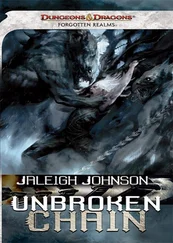Pete had big plans for Louie. A senior in 1931–32, he would graduate with ten varsity letters, including three in basketball and three in baseball. But it was track, in which he earned four varsity letters, tied the school half-mile record, and set its mile record of 5:06, that was his true forte. Looking at Louie, whose getaway speed was his saving grace, Pete thought he saw the same incipient talent.
As it turned out, it wasn’t Pete who got Louie onto a track for the first time. It was Louie’s weakness for girls. In February, the ninth-grade girls began assembling a team for an interclass track meet, and in a class with only four boys, Louie was the only male who looked like he could run. The girls worked their charms, and Louie found himself standing on the track, barefoot, for a 660-yard race. When everyone ran, he followed, churning along with jimmying elbows and dropping far behind. As he labored home last, he heard tittering. Gasping and humiliated, he ran straight off the track and hid under the bleachers. The coach muttered something about how that kid belonged anywhere but in a footrace. “He’s my brother,” Pete replied.
From that day on, Pete was all over Louie, forcing him to train, then dragging him to the track to run in a second meet. Urged on by kids in the stands, Louie put in just enough effort to beat one boy and finish third. He hated running, but the applause was intoxicating, and the prospect of more was just enough incentive to keep him marginally compliant. Pete herded him out to train every day and rode his bicycle behind him, whacking him with a stick. Louie dragged his feet, bellyached, and quit at the first sign of fatigue. Pete made him get up and keep going. Louie started winning. At the season’s end, he became the first Torrance kid to make the All City Finals. He finished fifth.
Pete had been right about Louie’s talent. But to Louie, training felt like one more constraint. At night he listened to the whistles of passing trains, and one day in the summer of ‘32, he couldn’t bear it any longer.
It began over a chore that Louie’s father asked him to do. Louie resisted, a spat ensued, and Louie threw some clothes into a bag and stormed toward the front door. His parents ordered him to stay; Louie was beyond persuasion. As he walked out, his mother rushed to the kitchen and emerged with a sandwich wrapped in waxed paper. Louie stuffed it in his bag and left. He was partway down the front walk when he heard his name called. When he turned, there was his father, grim-faced, holding two dollars in his outstretched hand. It was a lot of money for a man whose paycheck didn’t bridge the week. Louie took it and walked away.
He rounded up a friend, and together they hitchhiked to Los Angeles, broke into a car, and slept on the seats. The next day they jumped a train, climbed onto the roof, and rode north.
The trip was a nightmare. The boys got locked in a boxcar so hot that they were soon frantic to escape. Louie found a discarded strip of metal, climbed on his friend’s shoulders, pried a vent open, squirmed out, and helped his friend out, badly cutting himself in the process. Then they were discovered by the railroad detective, who forced them to jump from the moving train at gunpoint. After several days of walking, getting chased out of orchards and grocery stores where they tried to steal food, they wound up sitting on the ground in a railyard, filthy, bruised, sunburned, and wet, sharing a stolen can of beans. A train rattled past. Louie looked up. “I saw … beautiful white tablecloths and crystal on the tables, and food, people laughing and enjoying themselves and eating,” he said later. “And [I was] sitting here shivering, eating a miserable can of beans.” He remembered the money in his father’s hand, the fear in his mother’s eyes as she offered him a sandwich. He stood up and headed home.
When Louie walked into his house, Louise threw her arms around him, inspected him for injuries, led him to the kitchen, and gave him a cookie. Anthony came home, saw Louie, and sank into a chair, his face soft with relief. After dinner, Louie went upstairs, dropped into bed, and whispered his surrender to Pete.
In the summer of 1932, Louie did almost nothing but run. On the invitation of a friend, he went to stay at a cabin on the Cahuilla Indian Reservation, in southern California’s high desert. Each morning, he rose with the sun, picked up his rifle, and jogged into the sagebrush. He ran up and down hills, over the desert, through gullies. He chased bands of horses, darting into the swirling herds and trying in vain to snatch a fistful of mane and swing aboard. He swam in a sulfur spring, watched over by Cahuilla women scrubbing clothes on the rocks, and stretched out to dry himself in the sun. On his run back to the cabin each afternoon, he shot a rabbit for supper. Each evening, he climbed atop the cabin and lay back, reading Zane Grey novels. When the sun sank and the words faded, he gazed over the landscape, moved by its beauty, watching it slip from gray to purple before darkness blended land and sky. In the morning he rose to run again. He didn’t run from something or to something, not for anyone or in spite of anyone; he ran because it was what his body wished to do. The restiveness, the self-consciousness, and the need to oppose disappeared. All he felt was peace.
He came home with a mania for running. All of the effort that he’d once put into thieving he threw into track. On Pete’s instruction, he ran his entire paper route for the Torrance Herald, to and from school, and to the beach and back. He rarely stayed on the sidewalk, veering onto neighbors’ lawns to hurdle bushes. He gave up drinking and smoking. To expand his lung capacity, he ran to the public pool at Redondo Beach, dove to the bottom, grabbed the drain plug, and just floated there, hanging on a little longer each time. Eventually, he could stay underwater for three minutes and forty-five seconds. People kept jumping in to save him.
Louie also found a role model. In the 1930s, track was hugely popular, and its elite performers were household names. Among them was a Kansas University miler named Glenn Cunningham. As a small child, Cunningham had been in a schoolhouse explosion that killed his brother and left Glenn with severe burns on his legs and torso. It was a month and a half before he could sit up, and more time still before he could stand. Unable to straighten his legs, he learned to push himself about by leaning on a chair, his legs floundering. He graduated to the tail of the family mule, and eventually, hanging off the tail of an obliging horse named Paint, he began to run, a gait that initially caused him excruciating pain. Within a few years, he was racing, setting mile records and obliterating his opponents by the length of a homestretch. By 1932, the modest, mild-tempered Cunningham, whose legs and back were covered in a twisting mesh of scars, was becoming a national sensation, soon to be acclaimed as the greatest miler in American history. Louie had his hero.
In the fall of 1932, Pete began his studies at Compton, a tuition-free junior college, where he became a star runner. Nearly every afternoon, he commuted home to coach Louie, running alongside him, subduing the jimmying elbows and teaching him strategy. Louie had a rare bio-mechanical advantage, hips that rolled as he ran; when one leg reached forward, the corresponding hip swung forward with it, giving Louie an exceptionally efficient, seven-foot stride. After watching him from the Torrance High fence, cheerleader Toots Bowersox needed only one word to describe him: “Smoooooth.” Pete thought that the sprints in which Louie had been running were too short. He’d be a miler, just like Glenn Cunningham.
In January 1933, Louie began tenth grade. As he lost his aloof, thorny manner, he was welcomed by the fashionable crowd. They invited him to weenie bakes in front of Kellow’s Hamburg Stand, where Louie would join ukulele sing-alongs and touch football games played with a knotted towel, contests that inevitably ended with a cheerleader being wedged into a trash can. Capitalizing on his sudden popularity, Louie ran for class president and won, borrowing the speech that Pete had used to win his class presidency at Compton. Best of all, girls suddenly found him dreamy. While walking alone on his sixteenth birthday, Louie was ambushed by a giggling gaggle of cheerleaders. One girl sat on Louie while the rest gave him sixteen whacks on the rear, plus one to grow on.
Читать дальше












